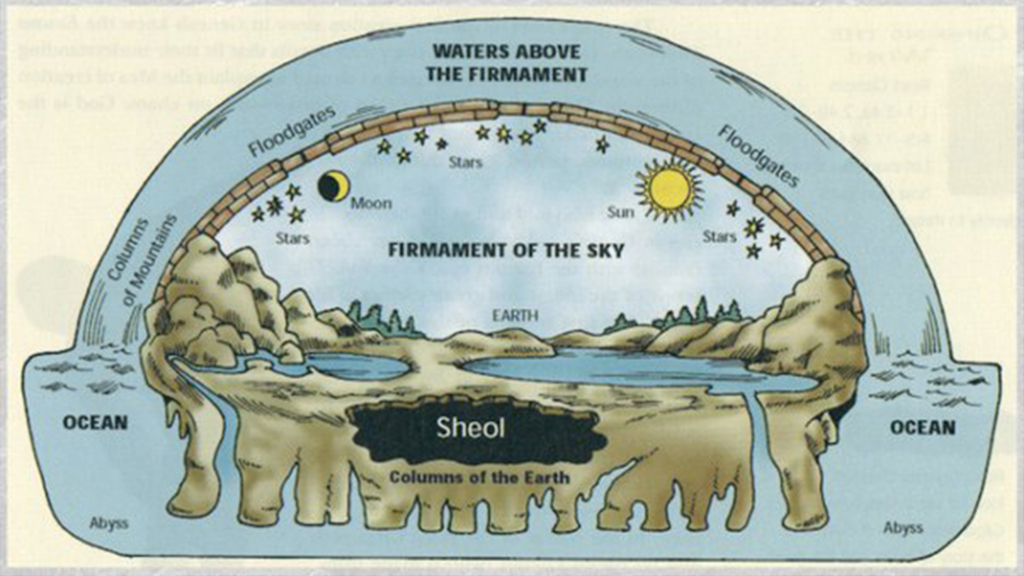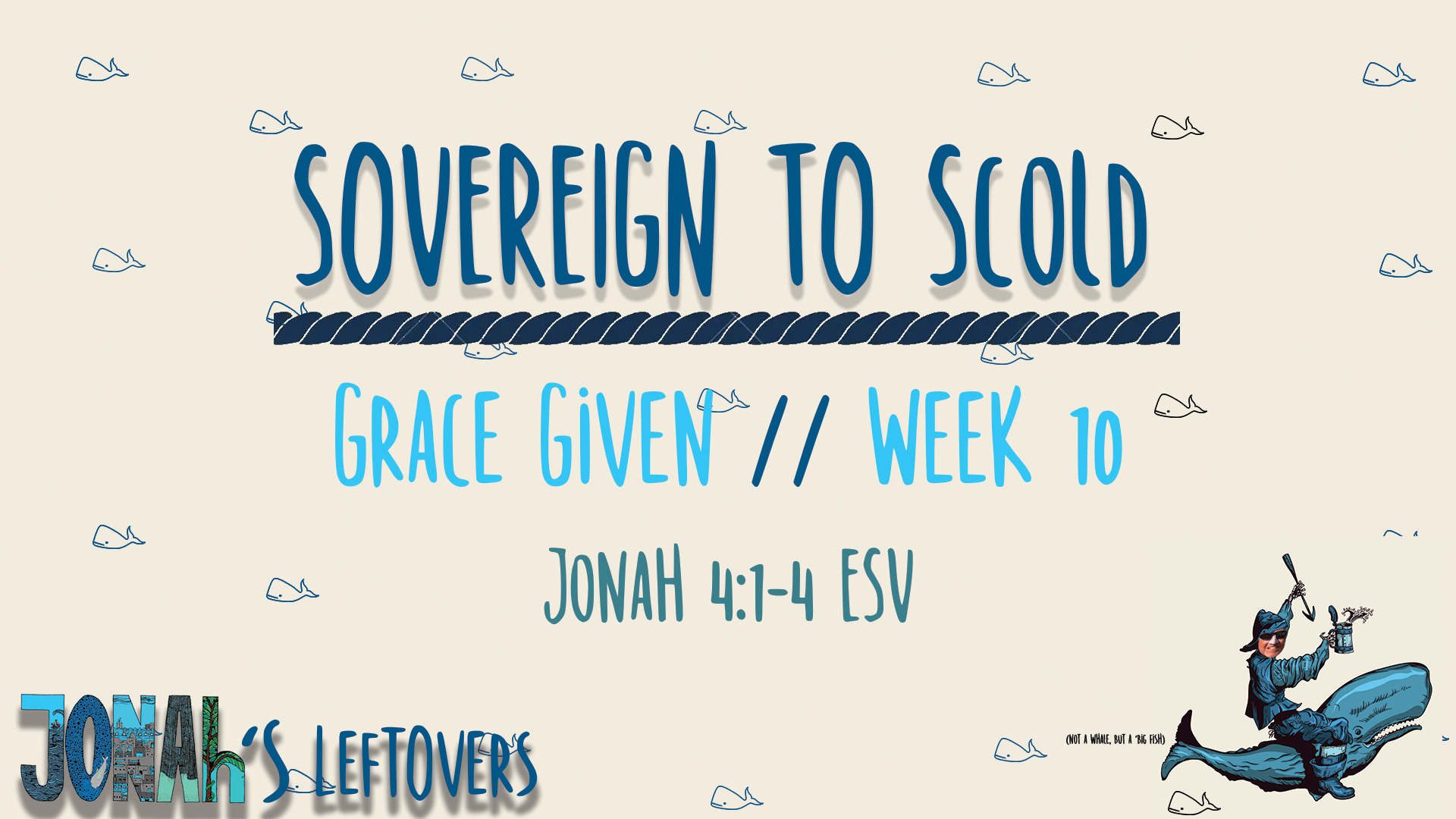Home » Jonah’s Leftovers // Jonah 2:1-4
Jonah’s Leftovers // Jonah 2:1-4

Sovereign To SAVE // PETITION
"1Then Jonah prayed to the Lord his God from the belly of the fish, 2saying, “I called out to the Lord, out of my distress, and he answered me; out of the belly of Sheol I cried, and you heard my voice. 3For you cast me into the deep, into the heart of the seas, and the flood surrounded me; all your waves and your billows passed over me. 4Then I said, ‘I am driven away from your sight; yet I shall again look upon your holy temple.’ ~Jonah 2:1-4 ESV
BACKGROUND
HOW TO APPROACH THE TEXT
BACK To THE FUTURE part II
Therefore, I think can be helpful – – if not just thought-provoking to read Jonah’s prayer in the following pattern:
THE MAIN POINT OF JONAH
THe prayer + The Place + THE PROMISE
VERSE 1
"Then Jonah prayed to the LORD his God from the belly of the fish," ~Jonah 2:1 ESV
So, there’s a very low probability this would happen to you..about 1 in a trillion of a chance, but it can happen and in fact it has happened (to a degree) even in our day. Check out this video below of 2 women kayakers in California who were swallowed and then spit back up by a whale.
*There is some language in this video (understandably), so proof it before showing it to children.
JONAH + NOAH
I think we tend to treat the story of Jonah similarly in a “wrong way,” as the story of Noah. In the Sunday School version of the Ark we find animals smiling in 2×2’s, holding hands, high-fiving and marching up the ramp to the boat. It’s all portrayed as rainbows and sunshine as if Noah’s some sort of snow-white “piper-prophet,” bringing in the animals.

Jonah's prayer
That’s NOT the picture the scriptures paint of this scene. Instead it’s cold and dark and tight and uncomfortable. It’s full of germs and who knows what else. At a minimum for Jonah here, this is distressing (V.2). At a maximum this is a nightmare!
Jonah's REPENTANCE
When Jonah turns to God in prayer, he’s embodying the essence of Biblical repentance.
King David by way of example from the Psalms demonstrates for us what Biblical repentance includes. —[Context] To this point he has committed adultery with Bathsheba, he’s had Uriah murdered, Bathsheba is pregnant, and Nathan the prophet has already come along and rebuked David in his sin. This Psalm sits alongside the infamous Psalm 51.
So, in Psalm 32:5a David prays in his sin, “I acknowledged my sin to you…”
VERSE 2a
"saying, “I called out to the Lord, out of my distress, and he answered me; out of the belly of Sheol I cried, and you heard my voice. ~Jonah 2:2 ESV
So we know that Jonah is somewhere in the middle of the Mediterranean now and he’s at the express mercy of God in this moment, and he prays. But what’s weird about this prayer is that he immediately begins to recount having prayed to the LORD in a past tense. “I called,” “he answered,” “I cried,” “you heard.”
is Jonah a "prayer plagiarizer?
There’s almost nothing in this prayer (Jonah 2:1-10) that’s original to Jonah, but it’s actually a stitching together of a whole bunch of other Psalms.
//sidenote//—This is super important to note for next week that the writer of Jonah has put the songs of Israel into the mouth of Jonah; it helps us understand the “sea-weeds,” reference.
So, why does Jonah do this? Or, why does the author have Jonah doing this? I believe it’s because these Psalms are the words and the songs he would’ve grown up learning and memorizing and reciting with his family and in his community. It’s the words of God He would’ve hidden in his own heart that would’ve been able to communicate what was otherwise difficult to communicate in this devastating moment.
Q1 / / Are you hiding the WOG in your own heart? Are you hiding the WOG in the heart of those around you so the Holy Spirit can autopilot in difficult moments?
Jonah's PLACE ~ part 1
VERSE 2B
"saying, “I called out to the Lord, out of my distress, and he answered me; out of the belly of Sheol I cried, and you heard my voice. ~Jonah 2:2 ESV
Jonah's Distressed
JonaH + SHEOL
Q1 // In the “deep and dark,” places you find yourself in, is God’s presence enough for you?
Jonah's PLACE ~ part 2
VERSE 3 + 4a
"3For you cast me into the deep, into the heart of the seas, and the flood surrounded me; all your waves and your billows passed over me. 4Then I said, ‘I am driven away from your sight." ~Jonah 2:3-4a ESV
ancient cosmology + GENESIS 7

Q1 // Is there anyone in your life you need to pray for the tehom of God to overcome them so that they might ‘sink to their senses,’ and find Christ?
God's Promise
VERSE 4A+b
"4aTHEN I SAID, ‘I AM DRIVEN AWAY FROM YOUR SIGHt; 4b-yet I shall again look upon your holy temple.’"~Jonah 2:4 ESV
THE "YET," is YET-TO-COME
First off, notice here how Jonah proclaims 2 opposing ideas in this by saying: “I am cast out of your sight”; and, secondly, notice His faith rise up — “Yet I will look again towards your holy temple.” These, remember were both found in ONE man at ONE time.
//sidenote//—This is comforting to me, in that I might have moments of doubt – – but ultimately God is still there in the midst of our doubt (Jude 22) and it’s a beautiful thing when we come to our Holy Spirit senses in those moments. Doubt doesn’t overcome God, but can actually be a pathway for us to find Him as God overcomes our doubt. This is how most of the apostles started out also–in doubt. But, when they examined the evidence for themselves they found faith.
Q1 // How can you place your “yet,” of faith– on the table before God, even when your circumstances tell you to do differently?
SUMMARY
Have you downloaded The app?!
Check out your unique God-wiring
CHURCH IS MORE
than sunday

Jonah’s Leftovers // Jonah 4:10-11

Jonah’s Leftovers // Jonah 4:5-9


